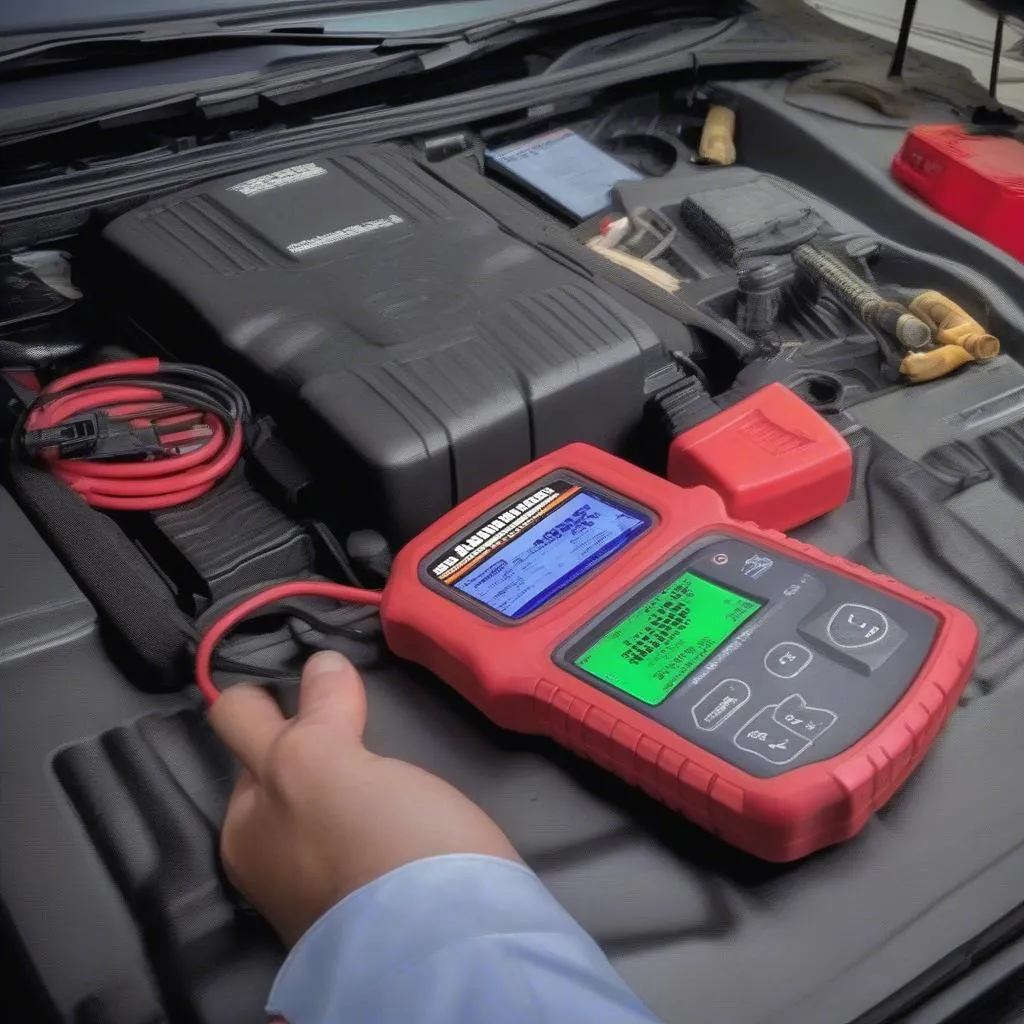Have you ever been in a situation where your car’s check engine light came on, and you had no idea what was wrong? It’s a frustrating experience, and it can be expensive if you have to take your car to a mechanic just to get a diagnostic code read. This is where an OBD2 scanner comes in handy. It’s an affordable tool that allows you to diagnose car problems yourself. But what about Harbor Freight OBD2 scanners? Are they worth the money?
Understanding the Question: Are Harbor Freight OBD2 Scanners Any Good?
Let’s break down the question from different perspectives:
From a Mechanic’s Perspective
Mechanics rely on accurate and reliable diagnostic tools to efficiently diagnose car problems. They often choose professional-grade scanners from reputable brands like Launch, Autel, and Snap-on, which offer advanced features and robust functionality. While Harbor Freight scanners might provide basic functionality, they are generally considered less sophisticated and less reliable.
From a Technical Perspective
OBD2 scanners are essentially communication devices that connect to your car’s onboard computer system. They receive diagnostic information from the car’s sensors and modules, allowing you to identify fault codes. While Harbor Freight scanners typically adhere to OBD2 standards, their coding abilities and data accuracy might not be as robust as those of higher-end scanners.
From an Economic Perspective
Harbor Freight is known for offering affordable tools, and their OBD2 scanners are no exception. They represent a budget-friendly option for DIY car enthusiasts or those who occasionally need to diagnose basic car problems. However, it’s important to consider the potential for compromising on accuracy and reliability.
The Answer: It Depends
The answer to the question “Are Harbor Freight OBD2 scanners any good?” isn’t a simple yes or no. It depends on your needs and expectations.
When Harbor Freight Scanners Can Be a Good Choice:
- Basic Code Reading: If you only need to read and clear diagnostic codes occasionally, a basic Harbor Freight scanner might suffice.
- Budget-Conscious: For individuals on a tight budget, Harbor Freight scanners offer a cost-effective way to access some OBD2 capabilities.
- Occasional Use: If you don’t need to use a scanner frequently, a Harbor Freight scanner could serve as a convenient tool for basic diagnostics.
When Harbor Freight Scanners Might Not Be Suitable:
- Advanced Diagnostics: If you need to perform more complex diagnostics, such as live data readings, sensor testing, or module reprogramming, a higher-end scanner is recommended.
- Professional Use: Mechanics and professional automotive technicians generally require more advanced tools and features than those offered by Harbor Freight scanners.
- Frequent Use: If you plan to use a scanner regularly, investing in a more reliable and durable model from a reputable brand might be a better option.
Common Questions About Harbor Freight OBD2 Scanners
Many people ask about specific aspects of Harbor Freight scanners. Here are some common questions and answers:
Are Harbor Freight Scanners Compatible With All Cars?
Most Harbor Freight scanners are compatible with vehicles manufactured after 1996 in the US, which is when OBD2 became mandatory. However, some older cars or vehicles from other countries might not be compatible.
How Accurate Are Harbor Freight Scanners?
The accuracy of Harbor Freight scanners can vary depending on the model and the car. In general, they are considered less accurate than professional-grade scanners, and some models might be prone to occasional glitches or inaccurate readings.
Do Harbor Freight Scanners Work With European Cars?
Some Harbor Freight scanners claim to be compatible with European cars. However, their compatibility might be limited to specific models or vehicle years. For European cars, it’s often recommended to choose a scanner designed specifically for European vehicles.
Can I Use a Harbor Freight Scanner to Clear Check Engine Lights?
Yes, most Harbor Freight OBD2 scanners can clear check engine lights. However, it’s important to understand that clearing the code does not necessarily fix the underlying problem.
Choosing the Right OBD2 Scanner: A Practical Approach
It’s essential to make an informed decision when choosing an OBD2 scanner. Consider the following:
- Your Budget: Determine how much you are willing to spend on a scanner.
- Your Needs: Evaluate what features and functionality you require.
- Your Level of Expertise: Assess your comfort level with using diagnostic tools.
If you are a DIY enthusiast and only need to read basic codes occasionally, a Harbor Freight scanner could be a good starting point. However, if you require more advanced functionality or plan to use a scanner regularly, investing in a higher-end model from a reputable brand might be a wiser choice.
 Harbor Freight OBD2 Scanner
Harbor Freight OBD2 Scanner
Other Resources for Automotive Diagnostics
For more information about automotive diagnostics and OBD2 scanners, you can explore our website:
- Full System Diagnostic Scanner: Learn about the latest advancements in diagnostic technology.
- Are Harbor Freight Scan Tools Any Good?: Discover a detailed analysis of Harbor Freight scan tools.
- Best Harbor Freight OBD2 Scanner: Find out which Harbor Freight OBD2 scanner is best suited for your needs.
- What is the Best OBD2 Scan Tool to Buy?: Get insights into selecting the right OBD2 scanner for your car.
- Diesel Scan Tool Harbor Freight: Explore dedicated scanners for diesel vehicles.
Let’s Get Connected
We understand that finding the right tools can be a challenge. If you need help with automotive diagnostics, our team of experts is available 24/7 to support you. Feel free to reach out to us via WhatsApp at +84767531508. We are here to guide you through the process and ensure your car is running smoothly.
Conclusion
Choosing the right OBD2 scanner is crucial for effective car diagnostics. While Harbor Freight offers affordable options, their reliability and accuracy can vary. Ultimately, the best choice depends on your individual needs and budget. By carefully considering your requirements and exploring available resources, you can make an informed decision and get your car back on the road with confidence. Don’t hesitate to share your thoughts or questions in the comments section below.